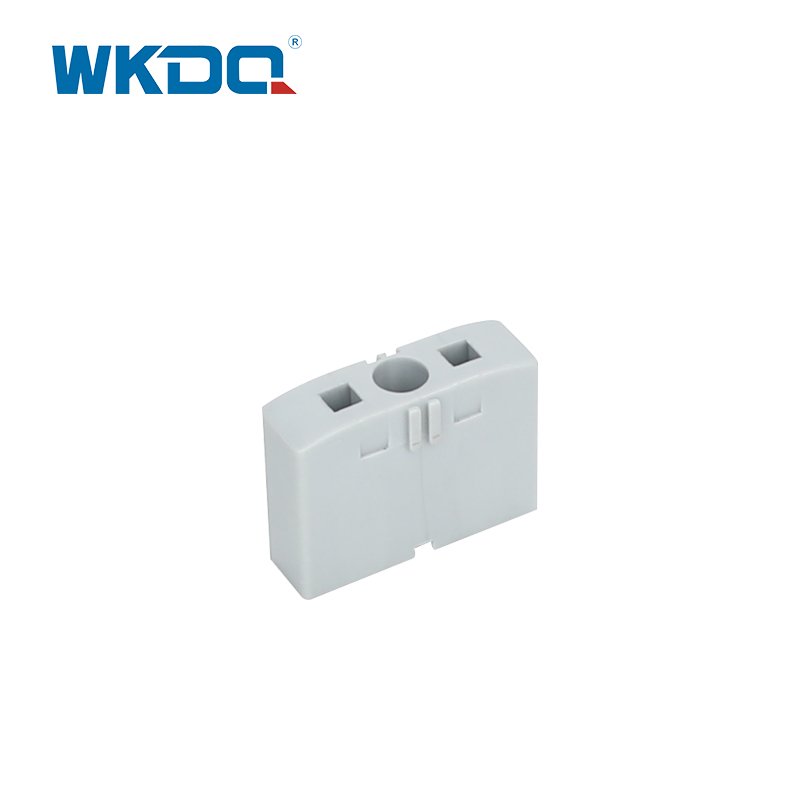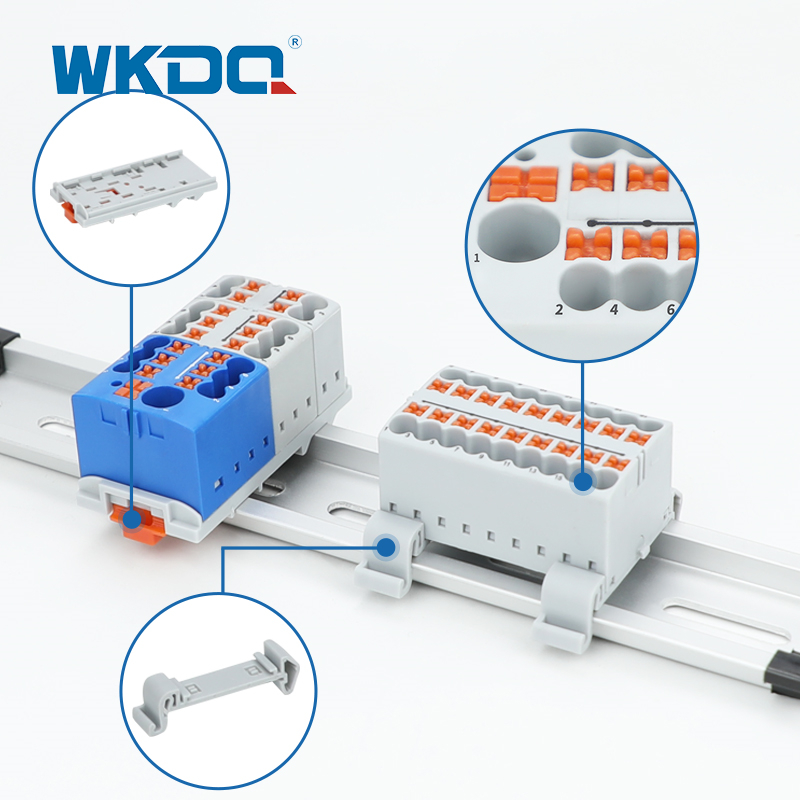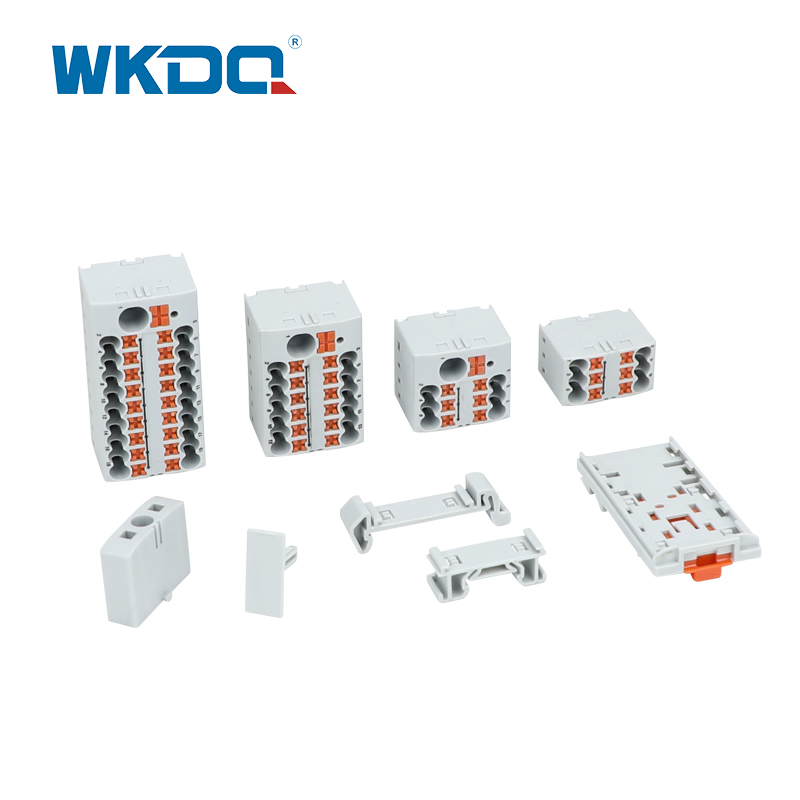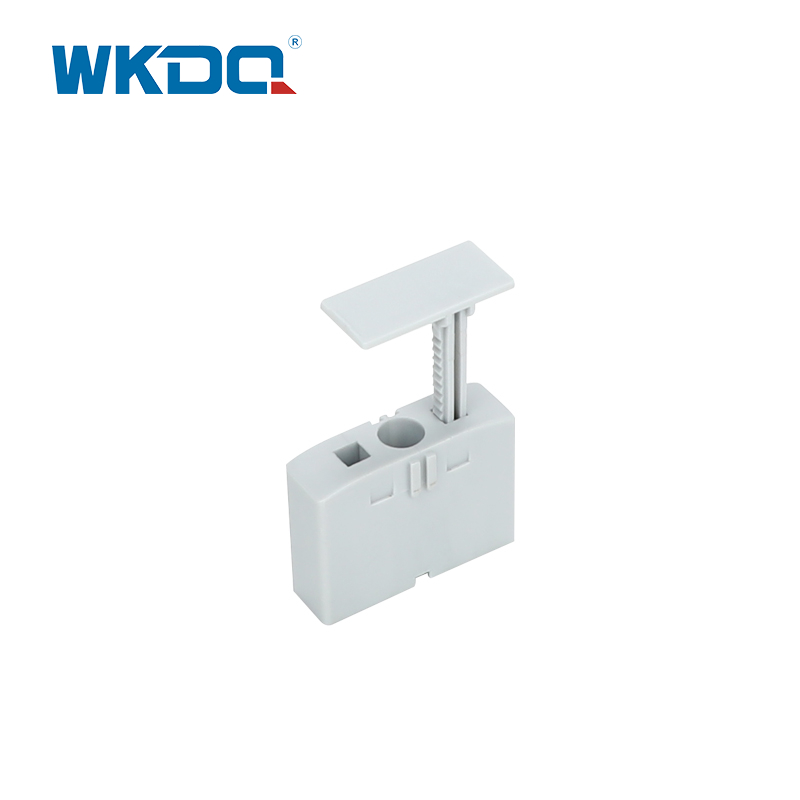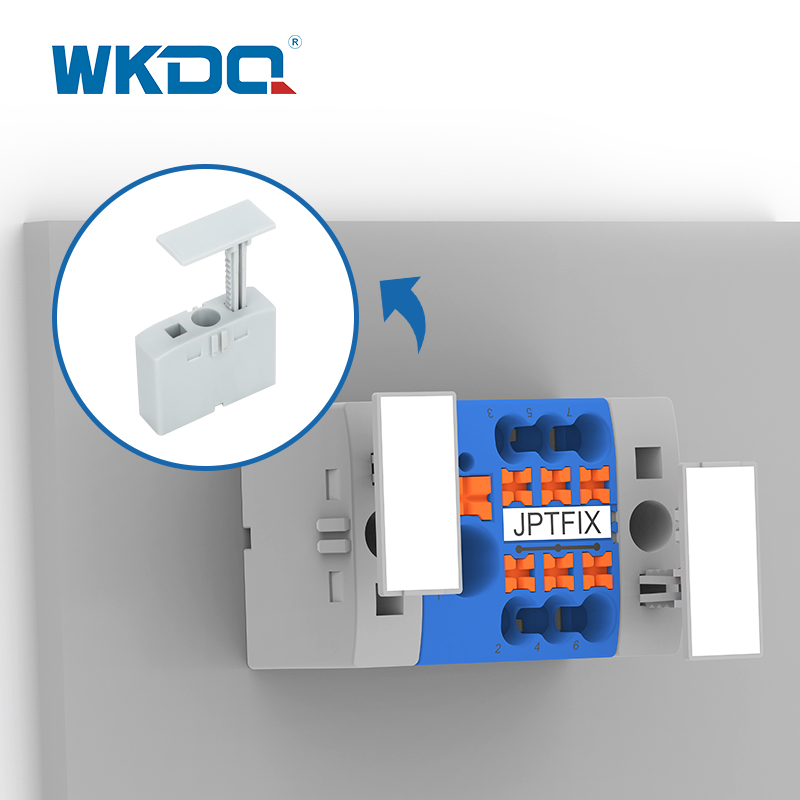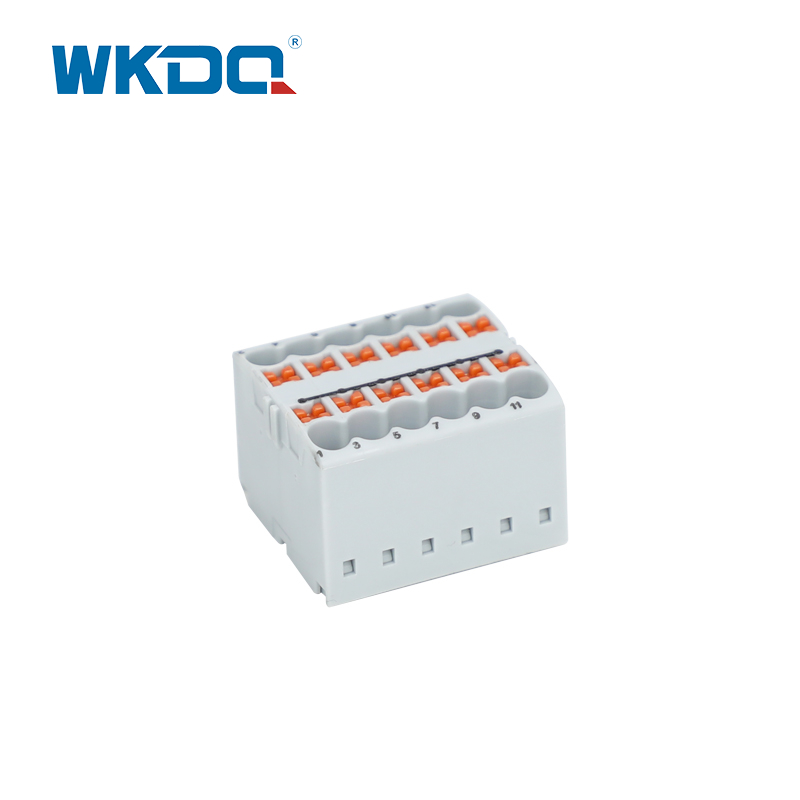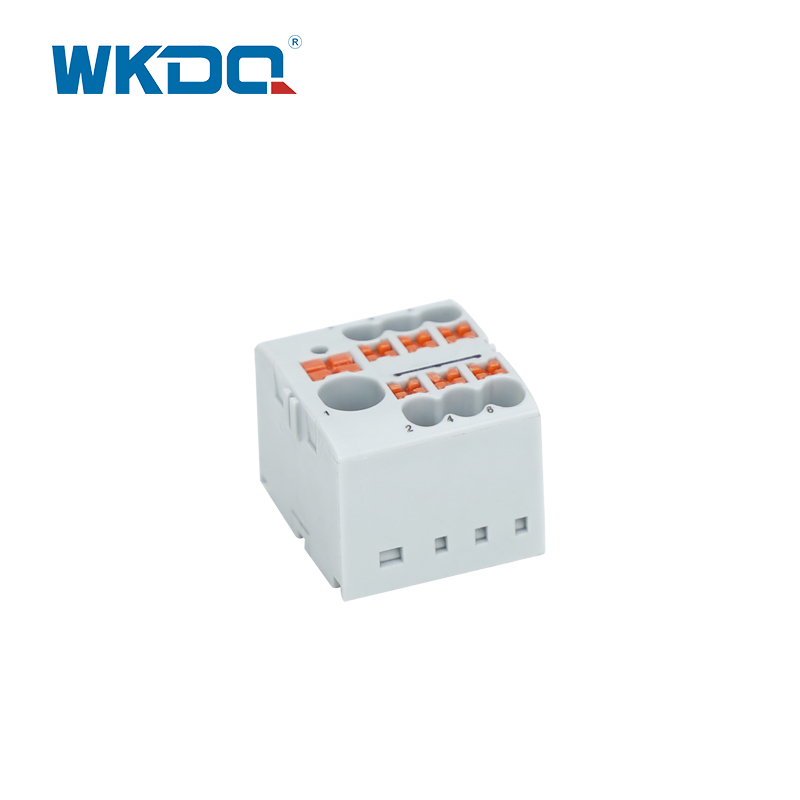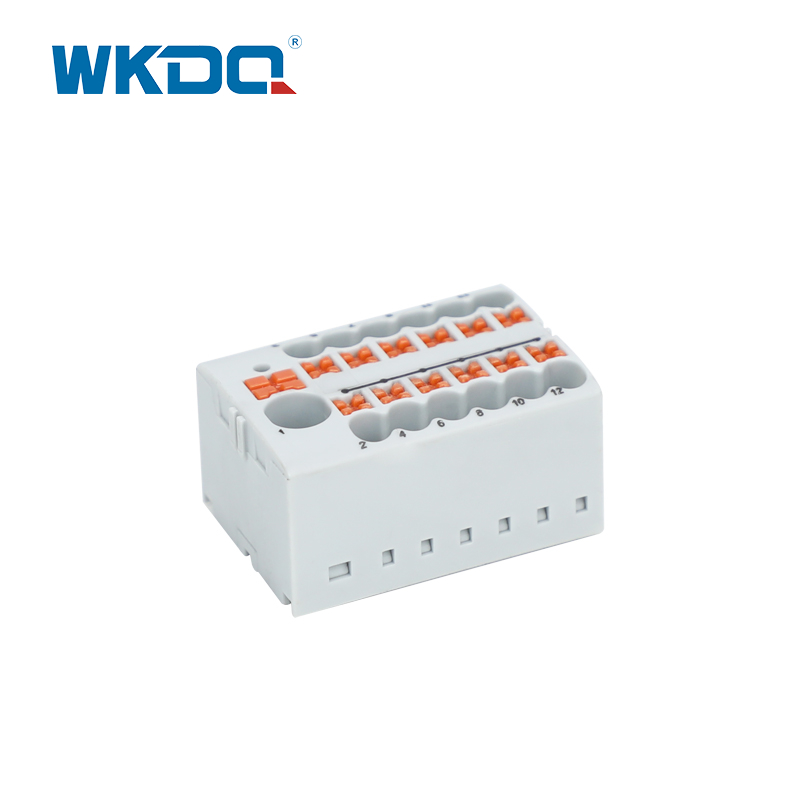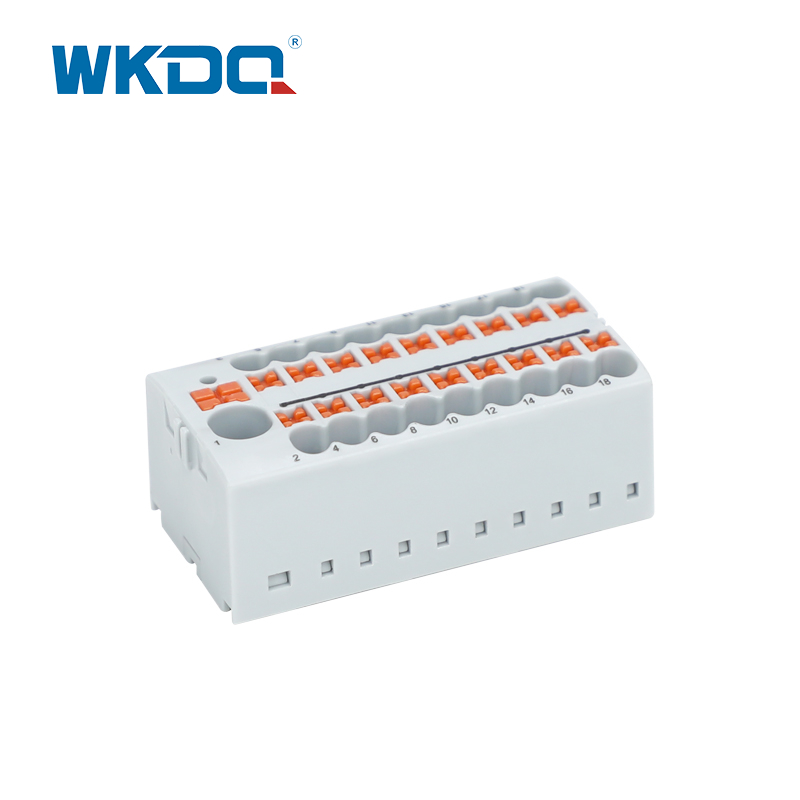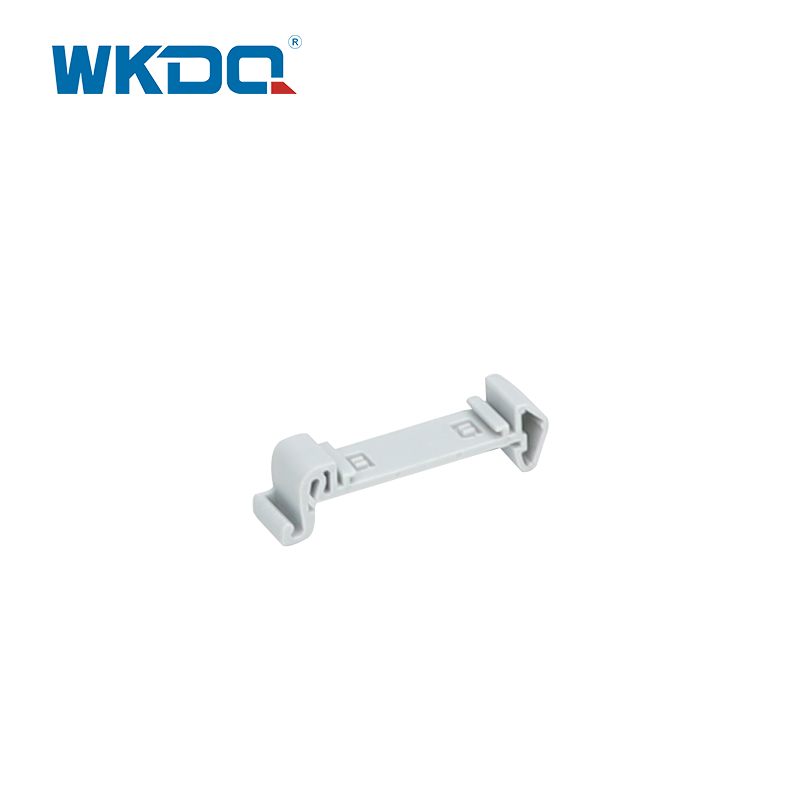- Push In Terminal Block
- Spring Terminal Block
- Spring Clamp Terminal Block
- Electrical Terminal Block
- Screw Terminal Block
- Screw Connection Terminal Block
- Hand Crimp Tools
- Din Rail 35mm
- Terminal Bus Bar
- Terminal Block Relay
- Power Distribution Terminal
- Wire End Ferrules
- Push In Wire Connectors
- Plug Socket Waterproof Connector
- Waterproof Electrical Connectors
- Electrical Cabinet Air Filter
- Distribution Block
- Aluminum High-current Terminal Blocks
Distribution Block Flange
Place of Origin: China
Brand Name: WKDQ
Certification: CE/RoHS/CQC/ISO 9001
Model Number: JPTFIX-F
Packaging Details: PCS
Delivery Time: 2-7days
Send Inquiry
Empowering Electrical Systems: The Crucial Role of Distribution Blocks
Distribution blocks, often known as terminal blocks or power distribution blocks, are the unsung heroes in electrical and power distribution systems. These unassuming components provide the vital infrastructure for the efficient and secure distribution of electrical power to various devices and circuits. In this article, we'll take a closer look at distribution blocks, highlighting their essential functions, diverse types, and the extensive applications that depend on their performance.
Functions of Distribution Blocks:
Distribution blocks serve several crucial functions that form the foundation for the reliable and efficient distribution of electrical power:Power Distribution: At their core, distribution blocks are designed to capture electrical power from a single source and distribute it to multiple outgoing circuits or devices. This ensures a systematic and controlled flow of electricity.Connections: Distribution blocks provide secure and organized connection points for wires and cables, ensuring dependable and stable electrical connections. This structured approach is vital for the smooth operation of electrical systems.Branching: These components allow for the branching or splitting of power, enabling the simultaneous supply of multiple devices or circuits. This flexibility is invaluable when power needs to be directed to various locations.Protection: Some distribution blocks come equipped with integrated overcurrent protection mechanisms. These safeguards shield connected circuits from excessive current, preventing damage and enhancing safety.Types of Distribution Blocks:
Distribution blocks are available in various types, each tailored to specific applications and requirements:Busbar Distribution Blocks: Often made of metal bars or strips, these components offer an exceptionally conductive path for electrical current. They excel in high-amperage applications and industrial settings where robust power distribution is imperative.Terminal Distribution Blocks: Terminal distribution blocks feature individual terminal connectors, simplifying the connection and disconnection of wires. They are ideal for low to medium-amperage applications where ease of use and flexibility are paramount.DIN Rail Mounted Distribution Blocks: Designed to be mounted on DIN rails, these blocks are commonly used in industrial control panels. They provide a compact and organized means of power distribution, optimizing space utilization.Fused Distribution Blocks: In mission-critical applications, some distribution blocks incorporate integrated fuses. These fuses act as a protective barrier, preventing overcurrent from damaging connected circuits. They are particularly vital when equipment protection is a top priority.Key Applications:
Distribution blocks are indispensable in a wide array of industries and settings, underscoring their versatility and significance:Industrial Control Panels: Control panels rely extensively on distribution blocks to efficiently distribute power to various components, including relays, sensors, and actuators. These components are pivotal for the operation of automated industrial processes.Electrical Panels: Distribution blocks are integral components of main electrical panels in residential, commercial, and industrial buildings. They ensure the orderly and secure distribution of power to different circuits and systems.Renewable Energy Systems: In the realm of renewable energy, distribution blocks facilitate the efficient channeling of power generated by sources such as solar panels and wind turbines. This power can be directed to batteries for storage or fed into the grid for broader use.Transportation: In vehicles and aircraft, distribution blocks play a pivotal role in distributing power to various electrical systems and components, ensuring the reliable operation of critical functions.Data Centers: Data centers heavily rely on distribution blocks to manage power distribution within their facilities. This ensures a consistent and uninterrupted power supply to servers, networking equipment, and other essential infrastructure.In conclusion, distribution blocks are the unsung heroes of organized and secure electrical power distribution. Their versatility and the variety of available types make them indispensable in a wide range of applications, from industrial settings to residential and commercial installations. A comprehensive understanding of the functions and types of distribution blocks is essential for designing and maintaining efficient and reliable electrical systems.

















